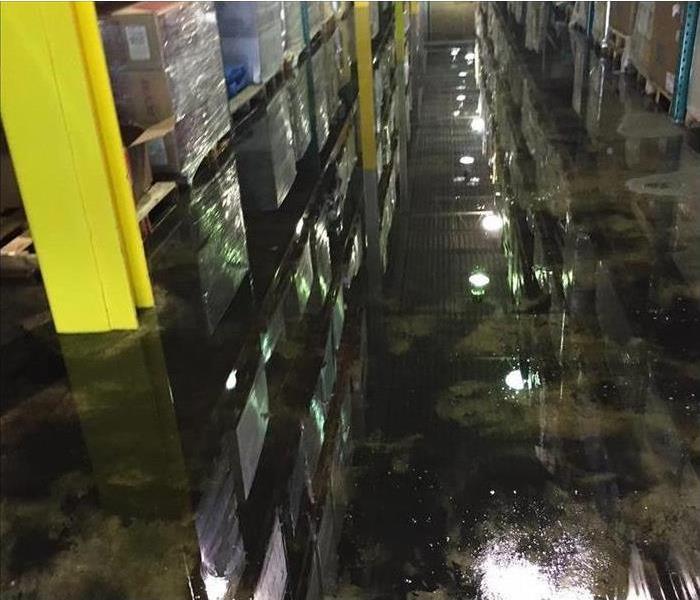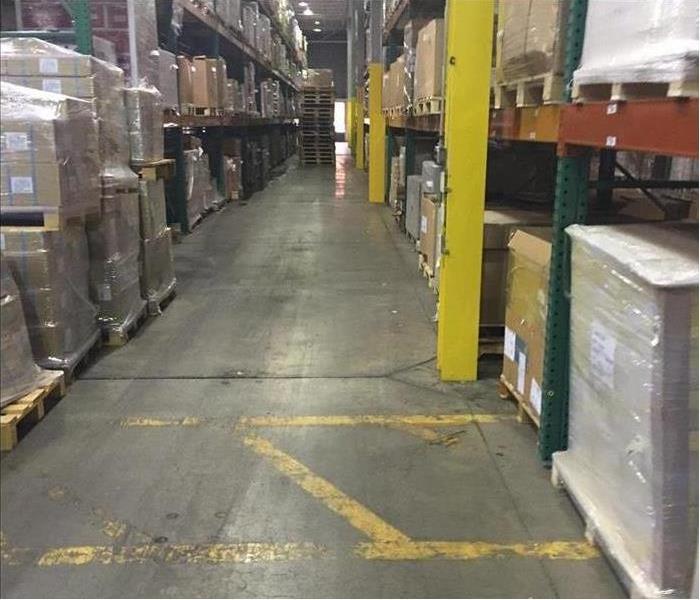Sprinkler Break, Peabody MA
Large water loss in commercial building.
The after picture was taken only four days after the incident. Our customer was expecting a much longer process and was thrilled with the results.
BEFORE A FLOOD (WHEN FLOODING IS FORECAST)
Be alert.
- Monitor your surroundings.
- Monitor NOAA Weather Radio, local television and radio stations, or go to www.weather.gov.
If a flash flood warning is issued for your area: Climb to safety immediately.
- Flash floods develop quickly. Do not wait until you see rising water.
- Get out of low areas subject to flooding.
- If driving, do not drive through flooded roadways!
Assemble disaster supplies:
- Drinking water – Fill clean containers.
- Food that requires no refrigeration or cooking.
- Cash.
- Medications and first aid supplies.
- Clothing, toiletries.
- Battery-powered radio.
- Flashlights.
- Extra batteries.
- Important documents: insurance papers, medical records, bank account numbers.
Be prepared to evacuate.
- Identify places to go.
- Identify alternative travel routes that are not prone to flooding.
- Plan what to do with your pets.
- Fill your car’s gas tank.
- If told to leave, do so quickly.
Review your Family Disaster Plan.
- Discuss flood plans with your family.
- Decide where you will meet if separated.
- Designate a contact person who can be reached if family members get separated. Make sure every family member has the contact information.
Protect your property.
- Move valuables and furniture to higher levels.
- Move hazardous materials (such as paint, oil, pesticides, and cleaning supplies) to higher locations.
- Disconnect electrical appliances. Do not touch them if you are wet or standing in water.
- Bring outside possessions indoors or tie them down securely. This includes lawn furniture, garbage cans, and other movable objects.
- Seal vents to basements to prevent flooding.
DURING A FLOOD
Be alert.
- Monitor your surroundings.
- Monitor NOAA Weather Radio, local television and radio stations, or go to www.weather.gov.
Don’t drive unless you have to.
If you must drive, travel with care.
- Make sure your vehicle has enough fuel.
- Follow recommended routes. DO NOT sightsee.
- Avoid disaster areas. Your presence might hamper rescue or other emergency operations and put you at further risk.
- Watch for washed out roads, earth slides, and downed trees or power lines.
- Be especially cautious at night, when it is harder to recognize flood dangers.
- If the vehicle stalls, abandon it.
- If water rises around your car, leave the vehicle immediately. Climb to higher ground as quickly as possible.
NEVER drive through flooded roadways. STOP! Turn Around Don’t Drown.
- The roadbed may be washed out.
- You can lose control of your vehicle in only a few inches of water.
- Your car may float. Vehicles can be swept away by less than 2 feet of water.
- Do not drive around a barricade. Turn around and go another way!
Get to high ground – Climb to safety!
- Get out of low areas that may be subject to flooding.
- Avoid already-flooded areas and do not attempt to cross flowing water.
- Stay away from power lines and electrical wires.






 24/7 Emergency Service
24/7 Emergency Service

